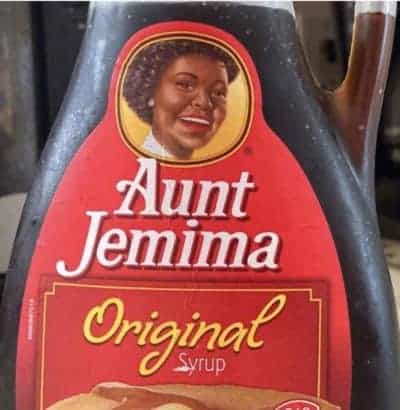
After George Floyd was killed, the left went wild and still are, rioting, protesting, tearing down statues, changing street names, and wiping out history. Aunt Jemima and Uncle Ben were two of the casualties.
“This is an injustice for me and my family. This is part of my history, sir,” Larnell Evans Sr. told writer Mark Konkol. “The racism they talk about, using images from slavery, that comes from the other side — white people. This company profits off images of our slavery. And their answer is to erase my great-grandmother’s history. A black female. … It hurts.”
The first “Aunt Jemima” debuted at Chicago’s World’s Fair in 1893. Former enslaved woman Nancy Green, who worked as a cook on the South Side, was hired to wear an apron and headscarf while serving pancakes to folks who came to visit the fairgrounds known as “The White City.” Green embodied the Aunt Jemima character until her death in 1923.
Evans says his great-grandmother — the late Anna Short Harrington — took Green’s place.
Quaker Oats also used Harrington’s pancake recipe, Evans and a nephew claimed and attempted to sue for profits. Evans said he didn’t have proper representation, and the suit failed.
“She worked for that Quaker Oats for 20 years. She traveled all the way around the United States and Canada making pancakes as Aunt Jemima for them,” he said. “This woman served all those people, and it was after slavery. She worked as Aunt Jemima. That was her job. … How do you think I feel as a black man sitting here telling you about my family history they’re trying to erase?”
Uncle Ben was real. He was the late Frank Brown and he was the maitre d’ at an exclusive Chicago restaurant frequented by the founder of Uncle Ben’s.
The black chef on the boxes of Cream Of Wheat is an image of a real person, too. The late Frank L. White was a chef in Chicago.
Whether you agree with Mr. Evans or not, that they are erasing history, it is always sad to lose an icon. In the beginning, the first two Aunt Jemima images were horrendous caricatures, but that changed. Aunt Jemima, the chef, and Uncle Ben were attractive, smiling people you would trust as chefs. They were all successful after slavery. They worked hard but they were free.
Subscribe to the Daily Newsletter